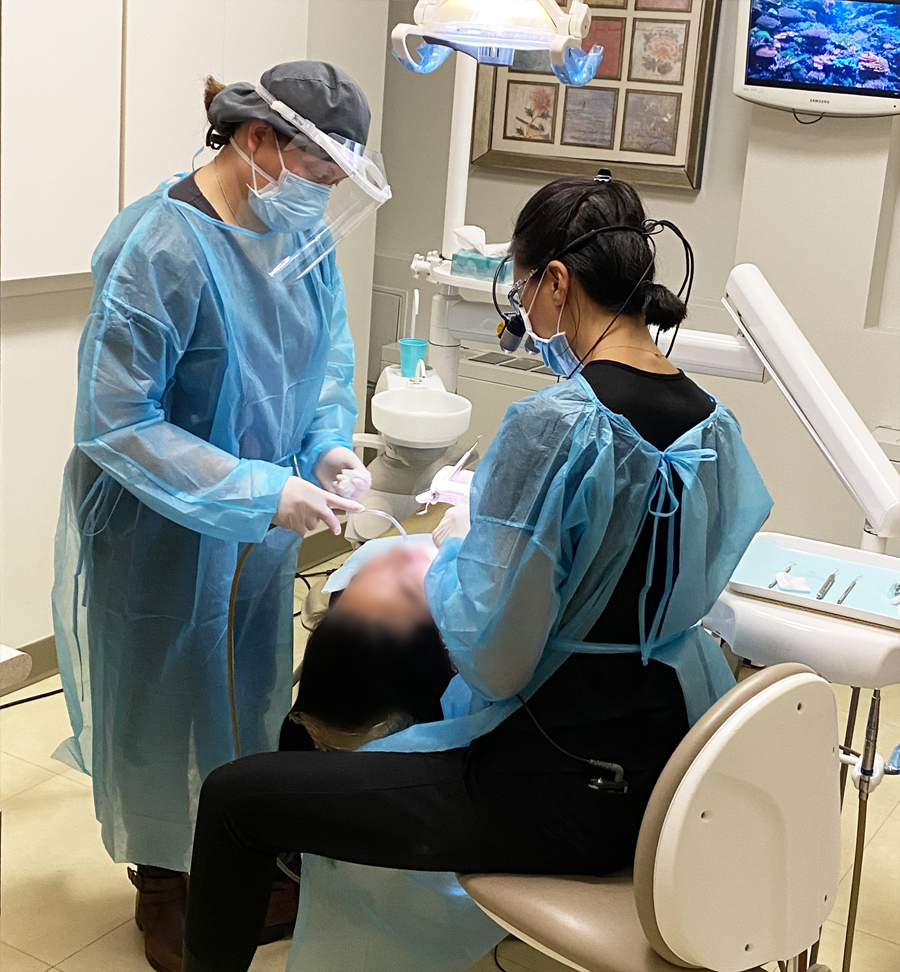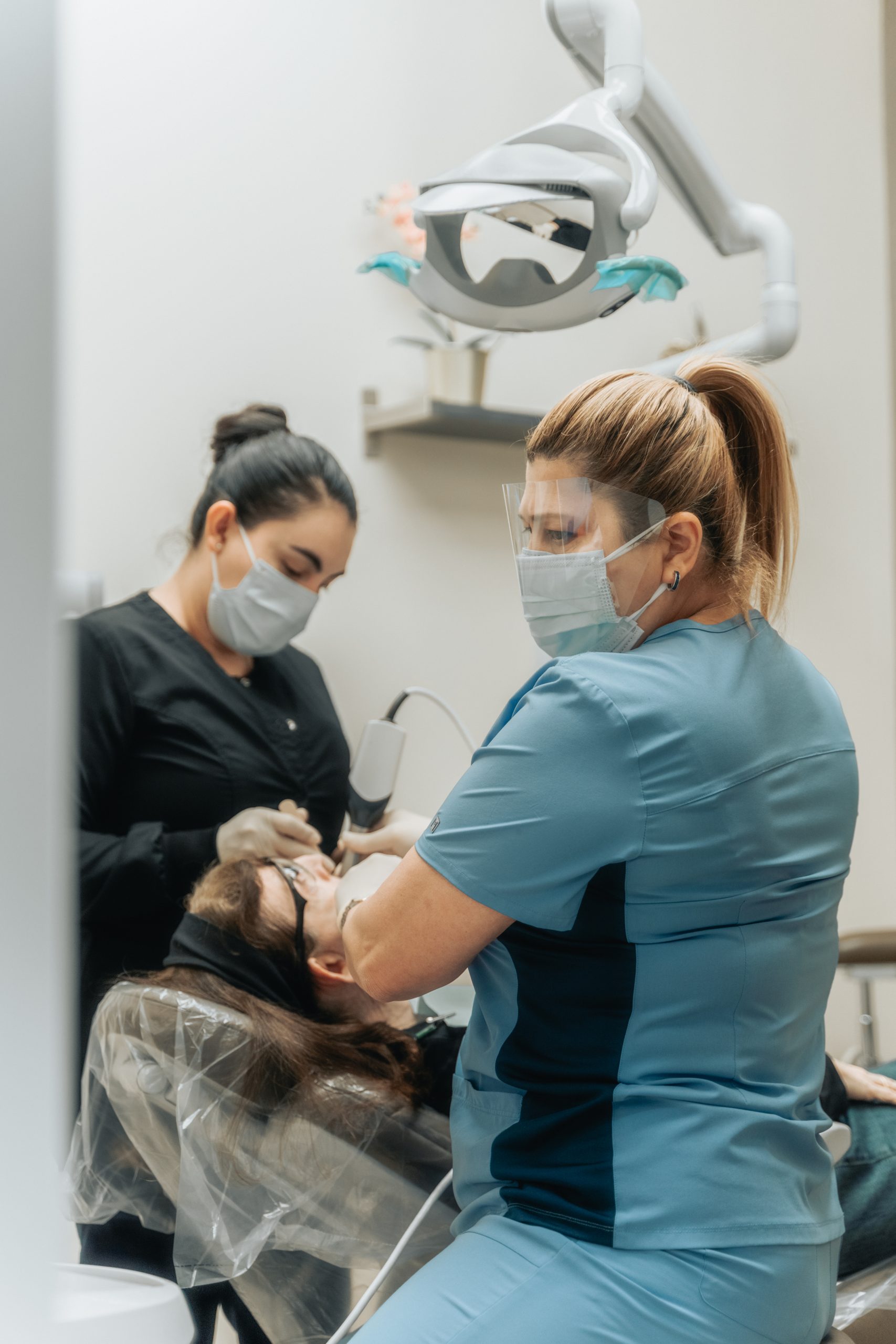Discover the Variety Of Dental Issues Dentists Frequently Handle
Dental experts are charged with dealing with a broad spectrum of oral problems, each calling for specialized knowledge and techniques. From the widespread issue of tooth cavities triggered by microbial activity to the a lot more insidious progression of gum condition, dental professionals have to be experienced at early discovery and treatment. Tooth sensitivity, often arising from used enamel, includes one more layer of intricacy, while the very early recognition of dental cancer can be life-saving. Additionally, misaligned attacks demand customized treatment strategies to improve both capability and visual appeals. What details methods do dentists use to handle these varied difficulties successfully?
Cavities and Dental Caries
While keeping optimum dental health is necessary, tooth cavities and dental cavity continue to be widespread problems that dental practitioners often address. Cavities, additionally referred to as cavities, are triggered by the demineralization of tooth enamel due to acid-producing bacteria in the mouth. These germs prosper on sugars and starches from food and drinks, producing a cycle of acid strikes that slowly erode the enamel and dentin layers of teeth. If left neglected, cavities can lead to substantial dental complications, including infections and tooth loss.
To detect tooth cavities and tooth decay, dental professionals employ a mix of visual exams, dental X-rays, and sometimes laser fluorescence devices. Treatment choices differ depending upon the severity of the degeneration. Early-stage cavities may be managed with fluoride treatments that help remineralize the enamel. For even more sophisticated degeneration, a dentist may require to eliminate the jeopardized tissue and restore the tooth with dental fillings made from products such as composite resin, amalgam, or porcelain.
Safety nets are paramount in combating dental caries and tooth degeneration. Regular oral check-ups, correct cleaning and flossing techniques, and a well balanced diet low in sweet foods and drinks are essential practices that support dental health and decrease the risk of dental cavities.
Gum Tissue Illness

This triggers the gums to pull away from the teeth, producing pockets that end up being infected. As the body's immune system deals with the germs, the bone and connective tissue that hold teeth in area are broken down.
Dental experts diagnose gum tissue disease with scientific exam and gum penetrating to determine pocket midsts around the teeth. Therapy might involve scaling and origin planing to eliminate tartar and microorganisms from tooth surface areas and underneath the periodontals. In severe instances, medical treatments like flap surgical treatment or bone grafts are needed to recover oral health. Keeping correct oral hygiene and regular dental exams are essential for protecting against gum tissue illness.

Tooth Sensitivity
Beyond gum tissue disease, another common oral problem that patients regularly encounter is tooth sensitivity. Defined by a sharp, transient pain in feedback to stimuli such as warm, chilly, pleasant, or acidic foods and beverages, tooth sensitivity can substantially affect a patient's lifestyle - dentist eugene or. This condition usually occurs when the safety enamel layer of the teeth becomes put on down or when the periodontals recede, revealing the underlying dentin. Dentin includes tiny tubules that have a peek at this site link to the nerve closings within the tooth, thus sending the unpleasant sensations.
Numerous factors add to the development of tooth level of sensitivity. Aggressive brushing, using unpleasant toothpaste, and the usage of acidic foods and beverages can deteriorate enamel. In addition, dental procedures, broken teeth, and gum tissue disease can expose the dentin. To minimize tooth sensitivity, dental practitioners might recommend making use of toothpaste formulated for sensitive teeth, fluoride therapies to enhance enamel, or dental bonding to cover subjected dentin. In severe cases, advanced therapies such as gum grafts or origin canals may be needed.
Inevitably, dealing with tooth sensitivity needs a comprehensive approach that consists of both precautionary procedures and targeted therapies to ease discomfort and shield the oral frameworks.
Oral Cancer Cells
Dental cancer, a potentially lethal and significant condition, commonly flies under the radar in routine oral treatment discussions. This sort of cancer cells can influence any kind of component of the oral dental caries, including the lips, tongue, cheeks, floor of the mouth, soft and difficult tastes buds, sinuses, and throat. Early detection is critical for successful treatment, yet many instances are diagnosed at sophisticated phases as a result of subtle preliminary symptoms.
Misaligned Bites
Misaligned bites, additionally called malocclusions, are an usual oral problem that can considerably affect both oral wellness and total quality of life - dentist eugene oregon. These problems occur when the upper and reduced teeth do not straighten properly, resulting in problems in attacking, chewing, and also speaking. Malocclusions can be classified right into various kinds, consisting of overbites, underbites, crossbites, and open attacks, each presenting unique difficulties that need tailored treatment methods
The causes of misaligned bites are varied and can consist of genetic variables, early loss of primary teeth, thumb sucking, and injuries to the jaw. Signs and symptoms usually consist of read review pain or pain in the jaw, regular biting of the internal cheeks, and a boosted danger their website of dental cavity and gum tissue condition due to problem in maintaining oral hygiene.
Orthodontists and dental professionals use a series of interventions to deal with misaligned bites, from conventional dental braces and clear aligners to extra sophisticated medical procedures in severe situations. Early diagnosis and therapy are essential to stop complications such as temporomandibular joint (TMJ) conditions and abnormal wear on teeth. Via comprehensive assessment and customized treatment plans, oral experts play an essential role in fixing malocclusions and boosting clients' oral function and appearances.
Conclusion
Tooth cavities and tooth degeneration result from microbial activity that compromises tooth enamel, while gum illness can escalate from gingivitis to severe gum conditions. Tooth sensitivity involves discomfort from thermal stimulations, demanding details treatment.
To diagnose cavities and tooth degeneration, dental experts use a combination of visual evaluations, dental X-rays, and in some cases laser fluorescence devices.Beyond gum illness, an additional common dental issue that patients often experience is tooth sensitivity. Furthermore, dental treatments, fractured teeth, and gum tissue disease can expose the dentin. To minimize tooth level of sensitivity, dentists might suggest utilizing toothpaste developed for sensitive teeth, fluoride treatments to enhance enamel, or dental bonding to cover subjected dentin. Tooth cavities and tooth degeneration result from bacterial activity that endangers tooth enamel, while gum condition can rise from gingivitis to extreme gum problems.